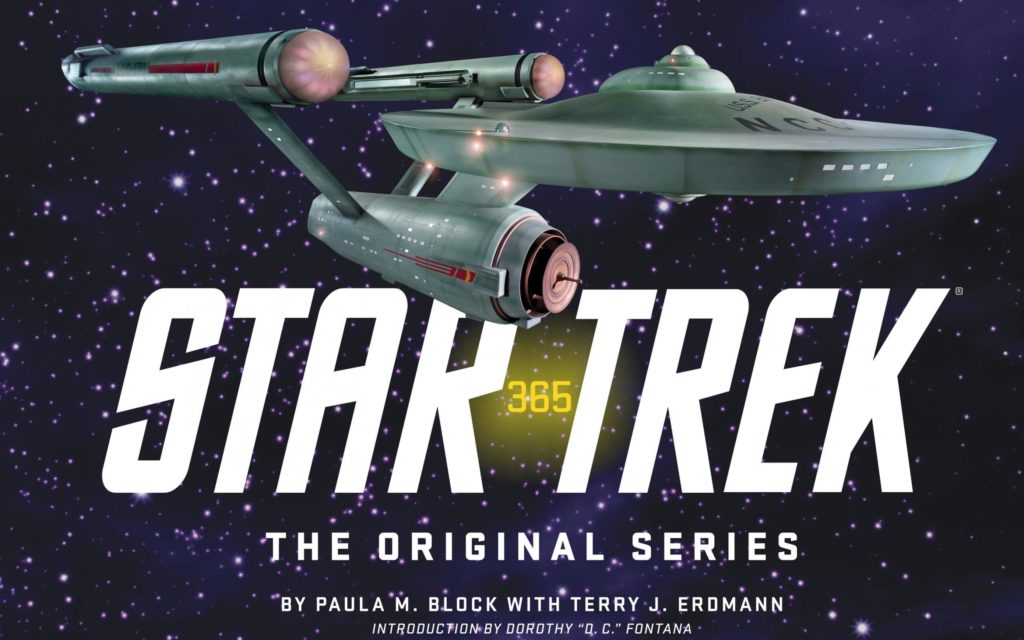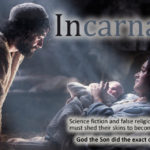Star Trek On TV
 By now most people who visit a site such as Spec Faith realize that Star Trek turned 50 this year. There have been a number of commemoratives as a result, including an actual coin minted for the occasion. As cool as it would be to own such a thing, I think it’s far cooler that an obscure free-TV station is airing all five of the Star Trek franchise shows, from season 1, episode 1 of each up through their final program.
By now most people who visit a site such as Spec Faith realize that Star Trek turned 50 this year. There have been a number of commemoratives as a result, including an actual coin minted for the occasion. As cool as it would be to own such a thing, I think it’s far cooler that an obscure free-TV station is airing all five of the Star Trek franchise shows, from season 1, episode 1 of each up through their final program.
The station is called Heroes and Icons, or H&I for short. Here’s one promo description:
Five epic series, five bold captains. Kirk, Picard, Sisko, Janeway and Archer each brought a unique approach to their Starfleet positions.
Now, the Star Trek legends are together for the first time on free TV with All Star Trek on H&I.
The H&I website has some fun quizzes: which captain said this, which planet is this, which alien? There are also video clips (not just promotional snippets as the one below, but a variety of others) and more:
But the great thing, of course, is getting to re-watch all these shows. I’m one of the few, apparently, who really likes Enterprise, the last in the line, though first in time sequence. But as I have watched, I realize my favorite is Deep Space Nine.
I used to think Next Generation was my favorite, but watching them together for the last several weeks has opened my eyes to a few things. Generally Next Generation was naive. The creators of the show depicted a future world filled with advanced races that had put peace at the center of their growing federation. Only those who weren’t as advanced exhibited aggressive and greedy tendencies.
The three shows that followed seemed to have a better grasp of the realities of sentient life: there’s great capacity for good and for evil in all of us. Still, the overarching idea of humankind’s goodness remained.
 Deep Space Nine is perhaps the most anti-Christian of all the programs.
Deep Space Nine is perhaps the most anti-Christian of all the programs.
The Bejoran religion might be the closest depiction of anything resembling Christianity in any of the five, but it is not shown in a favorable light. Their faith in aliens they believed to be “Prophets,” their clash with and attempt to gain control over the civilian government, their disrespect for science, and the hypocrisy of their leaders all make the Bejoran faith seem superstitious and dangerous.
More than that, the show’s conclusion is reminiscent of the Buddhist idea of Nirvana. Odo, the shapshifter who has had identity issues from the beginning, finally reaches a great pool of oneness where others of his kind melt together in a shared consciousness. In comparison Nirvana is
a transcendent state in which there is neither suffering, desire, nor sense of self, and the subject is released from the effects of karma and the cycle of death and rebirth. It represents the final goal of Buddhism.
Throughout the five series, the general theme of man’s evolution to a better state seems to hold. Nowhere is the idea of sin advanced. Though some individuals certainly come across as evil, no race is depicted as irredeemable—not even the Borg.
 I think the closest thing to a true depiction of humankind’s sin nature is unintentionally shown by the Trill, a race of people who desire above all else to be joined to a symbiont. These slug-like creatures—which are apparently a race unto themselves, but are completely dependent upon the Trill from conception—can live on indefinitely by taking on a new Trill host whenever their present host dies.
I think the closest thing to a true depiction of humankind’s sin nature is unintentionally shown by the Trill, a race of people who desire above all else to be joined to a symbiont. These slug-like creatures—which are apparently a race unto themselves, but are completely dependent upon the Trill from conception—can live on indefinitely by taking on a new Trill host whenever their present host dies.
In Deep Space Nine the character Jadzia Dax is a joined Trill. Dax is the slug and Jadzia, the humanoid host. In one episode a Trill who had been determined to be unfit for joining steals Dax from Jadzia. He reports feeling stronger, more confident, more knowledgeable as a result of his joining. When Jadzia is separated from Dax, she begins to die.
In many respects we can look at our lives with our sin nature as similar to the Trill. We are bound, and we don’t want to be separated. In fact, to do so is death. What we need, and what none of the Star Trek shows every considered, is a new life—Someone giving us a life that replaces the slug on which we depend.
In fact, what becoming followers of Jesus Christ requires is this death to sin and self. But thanks be to God. He gives a greater grace so we aren’t left alone.
I tend to think that the Star Trek franchise said a lot about humanity and spirituality, some false and some true, though perhaps in unintended ways similar to the example above. I’ve been re-watching these shows for enjoyment, but also as a writer. I like thinking about the story structure and why I’m drawn to Deep Space Nine more than to the others (though I really could make a case for Voyager being my favorite!) I think going forward, I want to think more about what these shows had to say about the human condition, and perhaps how they’ve influenced our culture.
Star Wars took us by storm but Star Trek might have the greater impact!











































I definitely think Roddenberry’s vision of a human Utopia where all races live together in harmony and peace has influenced our culture, in generally a good way. And you certainly can’t deny it’s influence in other ways – would people have started work on building a teleporter if Star Trek hadn’t shown us how cool it would be to say “Beam me up!” and have it work? However I can also see how the show (like many others) tends to portray the “value” of the “all roads lead to God” mindset.
I have to say that Picard is my favourite Captain. But I have a soft spot for them all. My favourite episode of the original series is the one where they discovered Christianity beginning again on an alien planet – they though everyone was worshipping the “sun” until they realized at the end that they were actually worshipping the “son”. Loved it!
Lisa, I do think Star Trek’s worldview has had a lasting influence, if not simply to popularize an existing position. It’s somewhat Hindu in it’s view. Somewhat, because they may all be doing peaceful exploration, but a lot of humanoids die!
Still, the idea that all of us should live in harmony and that all life should be respected is clear throughout, as you say.
Becky